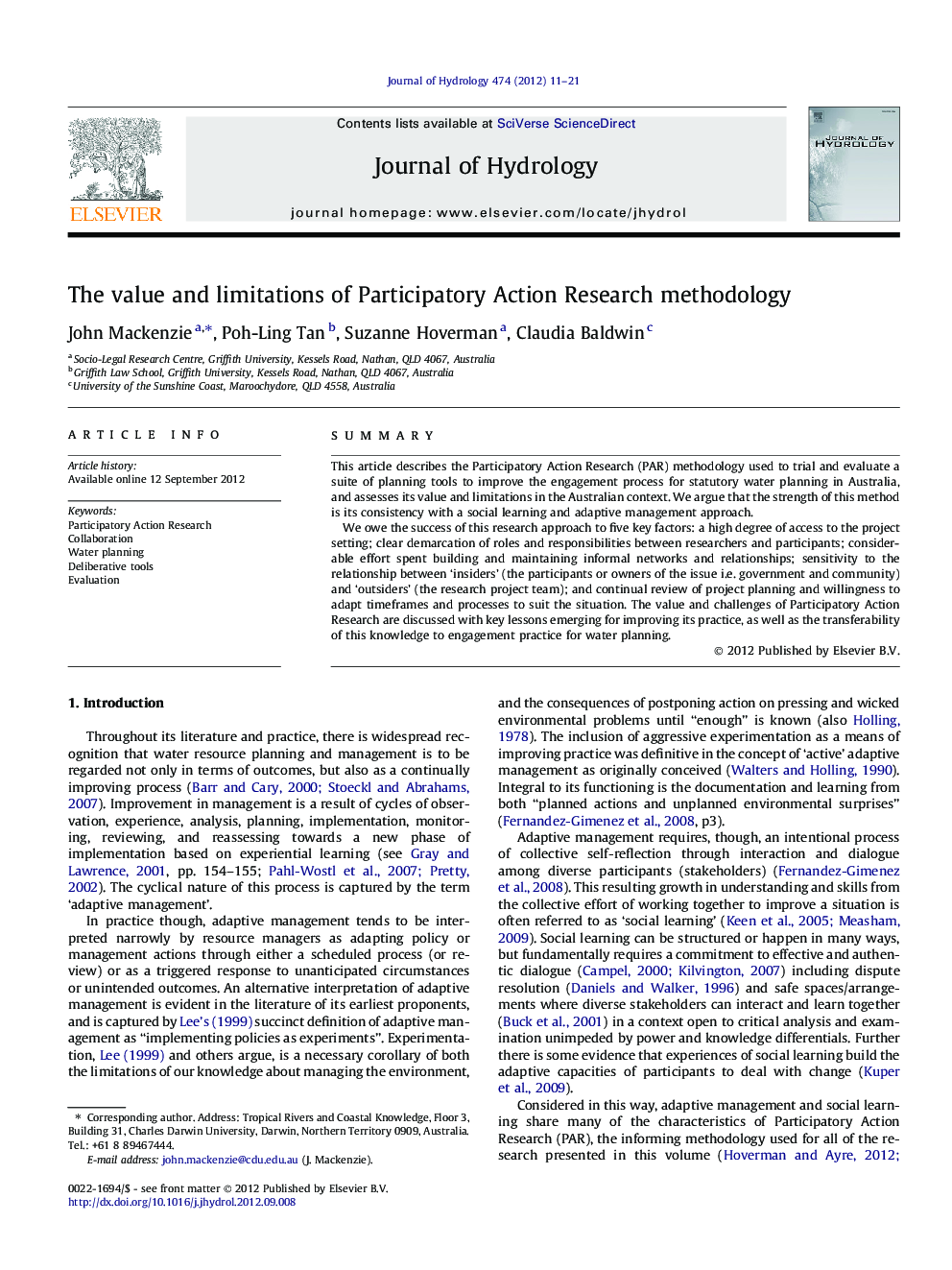| کد مقاله | کد نشریه | سال انتشار | مقاله انگلیسی | نسخه تمام متن |
|---|---|---|---|---|
| 4576685 | 1629974 | 2012 | 11 صفحه PDF | دانلود رایگان |

SummaryThis article describes the Participatory Action Research (PAR) methodology used to trial and evaluate a suite of planning tools to improve the engagement process for statutory water planning in Australia, and assesses its value and limitations in the Australian context. We argue that the strength of this method is its consistency with a social learning and adaptive management approach.We owe the success of this research approach to five key factors: a high degree of access to the project setting; clear demarcation of roles and responsibilities between researchers and participants; considerable effort spent building and maintaining informal networks and relationships; sensitivity to the relationship between ‘insiders’ (the participants or owners of the issue i.e. government and community) and ‘outsiders’ (the research project team); and continual review of project planning and willingness to adapt timeframes and processes to suit the situation. The value and challenges of Participatory Action Research are discussed with key lessons emerging for improving its practice, as well as the transferability of this knowledge to engagement practice for water planning.
► Participatory Action Research (PAR) was used to trial engagement tools.
► The method ensured the trials addressed specific in situ water planning issues.
► PAR directed the research towards policy and stakeholder relevant outcomes.
► In contested political contexts, PAR requires expert-level skills in facilitation.
Journal: Journal of Hydrology - Volume 474, 12 December 2012, Pages 11–21